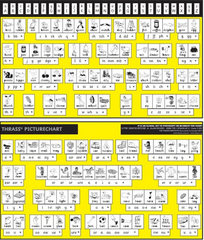
8 ways to support reading at home
Ensuring learning readiness in your child is the most important skill set you can give them. Primary school teachers in the formative years, often see a lack of readiness in little ones and this can be easily addressed. However, be mindful. Learning readiness does not mean hothousing your little one! Rather, providing them with a framework of skills that can be developed through age appropriate - often through play - activities.
There are a million and one ways to support reading at home for your pre-schooler and primary school child. Here, the teachers at EBP Education, summarise a few fun ways for you and your kids to begin building that vital framework of skills.
General sound discrimination
When you are out and about in the community with your kids, take note of the sounds in the environment. In the park, lay down on the grass and both of you close your eyes. What can you hear? Birds, wind in the leaves, dogs barking! Do all dogs bark the same? Do all aeroplanes sound the same?
Getting your child to tune into the sounds around them, develops vital listening skills and gets them ready for decoding sounds in books.
Games
Playing games with your child can make reading and reading concepts super fun. Play sound bingo and develop orthographic knowledge. Using simple resources to build words can be a fun way to develop sound manipulation and understanding around spelling patterns eg remove o from pot add a, what is the new word? Can you use the new word in a sentence?
Alison Clarke has developed some amazing resources that can be easily downloaded and laminated for use at home - https://www.spelfabet.com.au. She also writes informative blogs and creates useful videos to show you best practice.
Spelling
When your child asks how to spell a word, your first response should always be “what sounds can you hear?” Sound the word out together and attempt to determine which spelling patterns are in the word. You can use an alphabetic code chart to support spelling pattern choices, here is a free one from Debbie Hepplewhite that is easy to use - http://www.phonicsinternational.com/unit1_pdfs/The%20English%20Alphabetic%20Code%20-%20complete%20picture%20chart.pdf

Code charts are available from multiple sources, consider asking your childs teacher which one they use thus ensuring consistency between school and home.
The images show examples from Spelfabet and Thrass.


Decoding
NEVER ever ask your child to guess a word based on the accompanying picture. When a child is learning to read they need to experience success, why would we guess answers? We don’t guess the answers in math, science or humanities - so why do we assume its ok in English?
Complete this sentence using the image to guide you…
At the beach Billy wore his __________.

The answer could be swimmers, cap, sunglasses, towel! Don’t set your little one up for failure, teach them to decode. Try this - At the beach Billy wore his cap, sound out the underlined word c/a/p together slowly, then build up fluency. By doing this your child has learned to decode the words on the page, pictures make books beautiful and interesting, however in the art of reading they are unnecessary.
Reading for pleasure
All kids will have books sent home from school, most of the time they are a dull affair for you and your child. They can make or break a childs reading spirit! Make sure that as well as the dreaded reader, your child gets to read for pleasure. Let them choose which books they want to look at and read. Make it a big event by going to the bookstore or library weekly. Your local library will run reading sessions and kids love these because the adult reading the story does silly voices and can be very animated in their delivery. Even better, look up author readings. They can really make their books come alive for the listener. For the older child, set challenges, read the book then we can see the movie!
Know the lingo
Not all schools are progressive, believe it or not some are still using whole language strategies or Reading Recovery or worse whole language disguised as ‘Balanced Literacy’. If your child comes home with M100Words, refuse to use them but be prepared to know what you are talking about when your childs teacher asks why - read our blog Literacy: A Glossary of Terms - https://ebpeducation.myshopify.com/blogs/blog/literacy-a-glossary-of-terms-1 for a head start in developing your own literacy knowledge.
Read to your child
This may sound counter productive, but reading to your child can support language development. The statistics around language acquisition differentials in the first year of school are astounding. Do yourself a favour and give your child a head start by reading to them every single day and don't stop just because they are able to read for themselves. I recently read To Kill a Mockingbird to my 15 year old. As well as fostering a bond with my teenager, it gave her the opportunity to ask questions and discuss some really tricky concepts that she may have been uncomfortable asking in class.
Speak to people in the know
Ask questions and lots of them. There is no harm whatsoever in being the informed parent, in fact knowing best practice can only serve to positively support your childs journey through school. EBP Education run a number of parent workshops to support your little tackers journey through school, consider giving one a go and arm yourself with knowledge as well as a unique toolkit of resources developed by the teachers at EBP Education.
https://ebpeducation.myshopify.com/collections/parent-events
© EBP Education Pty Ltd 2018 - All rights reserved



